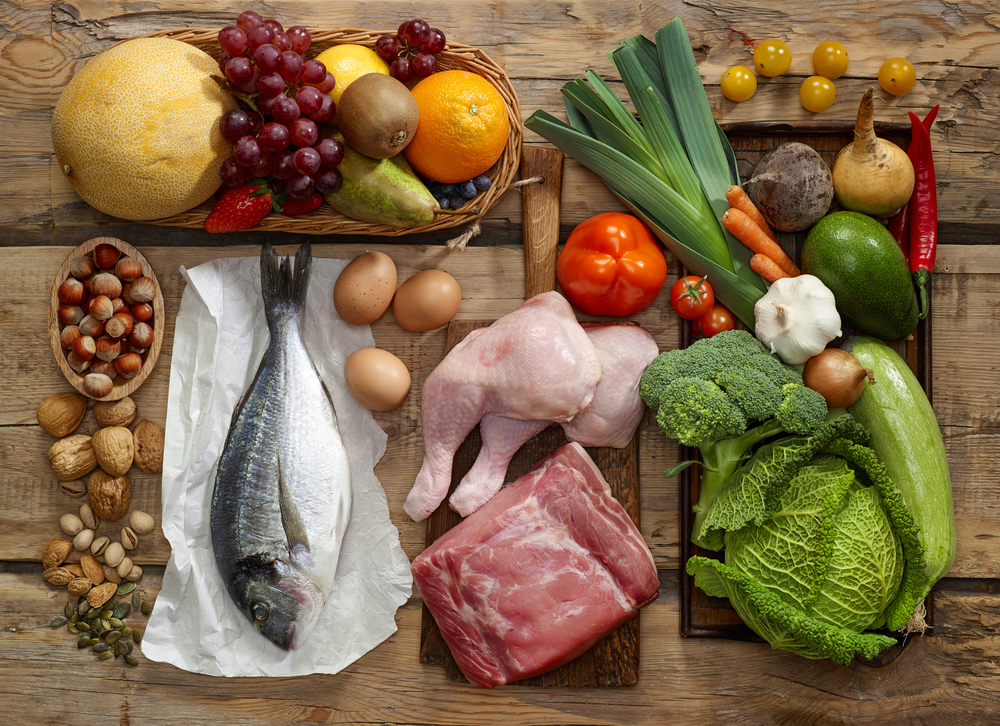Protein is often the starring role during mealtimes, but perhaps you might be better off moving it aside as a supporting cast of foods on your plate.
Although getting enough protein is important to your health, it provides many benefits including healthy nails and skin, weight loss, and building muscle. So how much is too much? Let’s find out.
Most Americans consume enough protein every day but probably might be getting too much protein from animal sources like poultry, meat, and eggs.
According to the Health and Medicine Division, the average adult living a sedentary lifestyle should eat about 0.36 grams of quality protein per given pound of their total body weight. For example, a 150-pound woman who doesn’t exercise much would need 54 grams of protein every day to meet her basic nutritional need. That is almost the size of two chicken breasts. One of the many benefits of eggs is that each egg includes 6 grams of protein, which is 13% of the daily recommended value.
More research claims that adults would gain more benefits by following a high protein diet and eating more than the daily required amount of protein. With high protein intakes, you will be able to lose weight and keep it off or work toward your fitness goals. Instead on giving an absolute number, a range between 0.50-0.80 grams of protein per pound is recommended. Unless you have pre-existing kidney problems, a high protein diet would be considered good for you.
More Exercise, More Protein Needed
If you exercise more than 5 times a day, you need to increase your protein intake. In order for your body to become stronger, the rate of your muscle growth and repair needs to outpace the process of muscle breakdown. For this to happen, you need more protein.
If you have a sedentary lifestyle: Aim for at least 0.45-0.68 grams of protein per body weight.
If you have a highly active lifestyle: Aim for at least 0.6-1.2 grams of protein per body weight.
Keep in mind that although protein is important to any diet, consuming extra protein will not help build stronger muscles unless you follow up with strength exercises. If you are obese, do not base your calculated needs on total body weight but rather by your ideal body weight.
Best Food Sources of Protein
Here are some of the best sources of protein, no matter what dietary restrictions you have.
Meat and Fish
- Fish such as cod, tuna, and salmon
- Lean meats such as turkey, ground beef, chicken, venison, and bison
Vegetarian
- Eggs
- Whey, casein, or egg protein powders
- Dairy such as Greek yogurt, cottage cheese, milk, cheek, etc.
Vegan
- Beans
- Legumes
- Peas
- Hemp soy or vegan protein powder blend. If you want to find out more on vegan protein powder, you could look into a site like https://www.veganproteinlab.com/best-vegan-protein-powders to give you alternative options to protein supplements.
- Tempeh, tofu, and meat substitutes
From garbanzos to split peas to lentils to black beans – plant based proteins can be used in a variety of dishes from spreads to chili and soups, however, unlike animal protein, most proteins that are plant-based are incomplete as they lack some vital amino acid building blocks.
Eat Protein to Lose Weight
The flexitarian diet is a combination of vegetarian and flexibility. It was developed as the ideal vegetarian way to lose weight, be healthy and add more years to your life. Eat protein to lose body fat, not muscle. It is highly important to keep protein levels high to maintain as much muscle without restricting your calories. High levels of protein will even keep you fuller longer.
Eat Protein to Build Muscle
Most people think that only eating protein will build muscle, but the truth is you will also need to increase your intake of protein and carbohydrates and consume more calories to stimulate muscle growth.
The protein servings of meat, fish, and poultry should be the thickness and size of the palm of your hand – which is around 3 ounces. Always make sure that your plate only takes up one-third of protein for every meal and include small amounts of protein to spread your daily intake evenly throughout the day.
Author Bio:
Ella James is an aspiring author who is pursuing Health Services Administration degree from St. Petersburg College. She is an active contributor to Consumer Health Digest. Her interests include reading and writing about Health, Fitness, and wellness information. Get connected with her on Facebook and Twitter.




FYI. ‘Vegan’ and ‘Vegetarian’ should be reversed. 😛
Thanks Dylan, all corrected now, appreciate the feedback 🙂